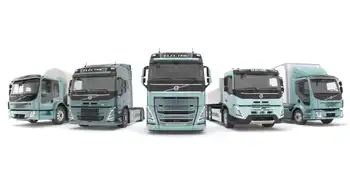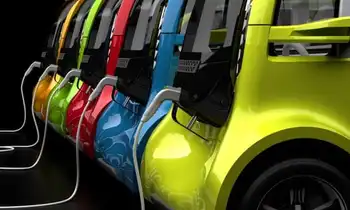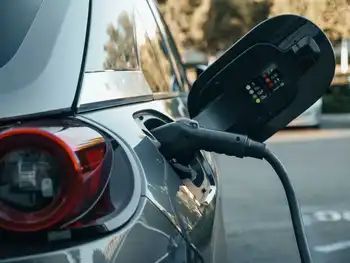Volvo Trucks to launch complete range of electric trucks in Europe in 2021

Substation Relay Protection Training
Our customized live online or in‑person group training can be delivered to your staff at your location.

- Live Online
- 12 hours Instructor-led
- Group Training Available
Volvo Electric Heavy-Duty Trucks lead Europe’s e-mobility shift, meeting strict emissions rules with battery-electric drivelines, hydrogen fuel cell roadmaps, fast charging infrastructure, and autonomous freight solutions for regional haulage and urban construction.
Key Points
A battery-electric heavy truck range for haulage and urban construction, targeting zero emissions and compliance.
✅ Up to 44t GCW, ranges up to 300 km per charge
✅ Battery-electric now; hydrogen fuel cells targeted next
✅ Production from 2022; suited to haulage and construction
According to the report published by Allied Market Research, the global electric truck market generated $422.5M (approx €355.1M) in 2019 and is estimated to reach $1.89B (approx €1.58B) by 2027, registering a CAGR of 25.8% from 2020 to 2027, reflecting broader expectations that EV adoption within a decade will accelerate worldwide.
The surge in government initiatives to promote e-mobility and stringent emission norms on vehicles using fossil fuels (petrol and diesel) is driving the growth of the global electric truck market, while shifts in the EV aftermarket are expected to reinforce this trend.
Launching a range of electric trucks in 2021
Volvo is among the several companies, including early moves like Tesla's truck reveal efforts, trying to cash in on this popular and lucrative market. Recently, the company announced that it’s going to launch a complete heavy-duty range of trucks with electric drivelines starting in Europe in 2021. Next year, hauliers in Europe will be able to order all-electric versions of Volvo’s heavy-duty trucks. The sales will begin next year and volume production will start in 2022.
“To reduce the impact of transport on the climate, we need to make a swift transition from fossil fuels to alternatives such as electricity. But the conditions for making this shift, and consequently the pace of the transition, vary dramatically across different hauliers and markets, depending on many variables such as financial incentives, access to charging infrastructure and type of transport operations,” explains Roger Alm, President Volvo Trucks.
Used for regional transport and urban construction operations
According to the company, it is now testing electric heavy-duty models – Volvo FH, FM, and FMX trucks, which will be used for regional transport and urban construction operations in Europe, and in the U.S., 70 Volvo VNR Electric trucks are being deployed in California initiatives as well. These Volvo trucks will offer a complete heavy-duty range with electric drivelines. These trucks will have a gross combination weight of up to 44 tonnes.
“Our chassis is designed to be independent of the driveline used. Our customers can choose to buy several Volvo trucks of the same model, with the only difference being that some are electric and others are powered by gas or diesel. As regards product characteristics, such as the driver’s environment, reliability, and safety, all our vehicles meet the same high standards. Drivers should feel familiar with their vehicles and be able to operate them safely and efficiently regardless of the fuel used,” says Alm.
Fossil free by 2040
Depending on the battery configuration the range could be up to 300 km, claims the company. Back in 2019, Volvo started manufacturing the Volvo FL Electric and FE Electric for city distribution and refuse operations, primarily in Europe, while in the van segment, Ford's all-electric Transit targets similar urban use cases. Volvo Trucks aims to start selling electric trucks powered by hydrogen fuel cells in the second half of this decade. Volvo Trucks’ objective is for its entire product range to be fossil-free by 2040.
Back in 2019, Swedish autonomous and electric freight mobility leader provider Einride’s Pod became the world’s first autonomous, all-electric truck to operate a commercial flow for DB Schenker with a permit on the public road. Last month, the company launched its next-generation Pod in the hopes to have it on the road starting from 2021, while major fleet commitments such as UPS's Tesla Semi pre-orders signal broader demand.











